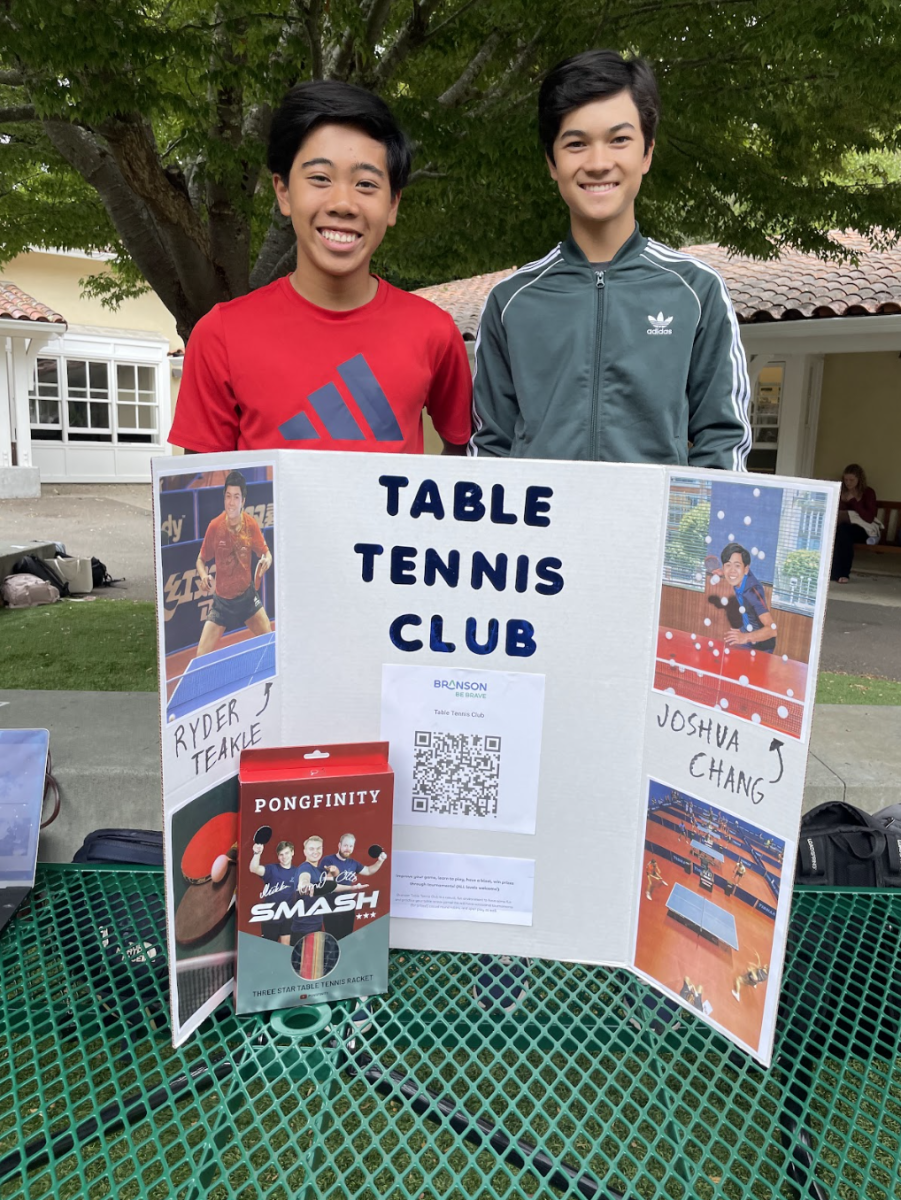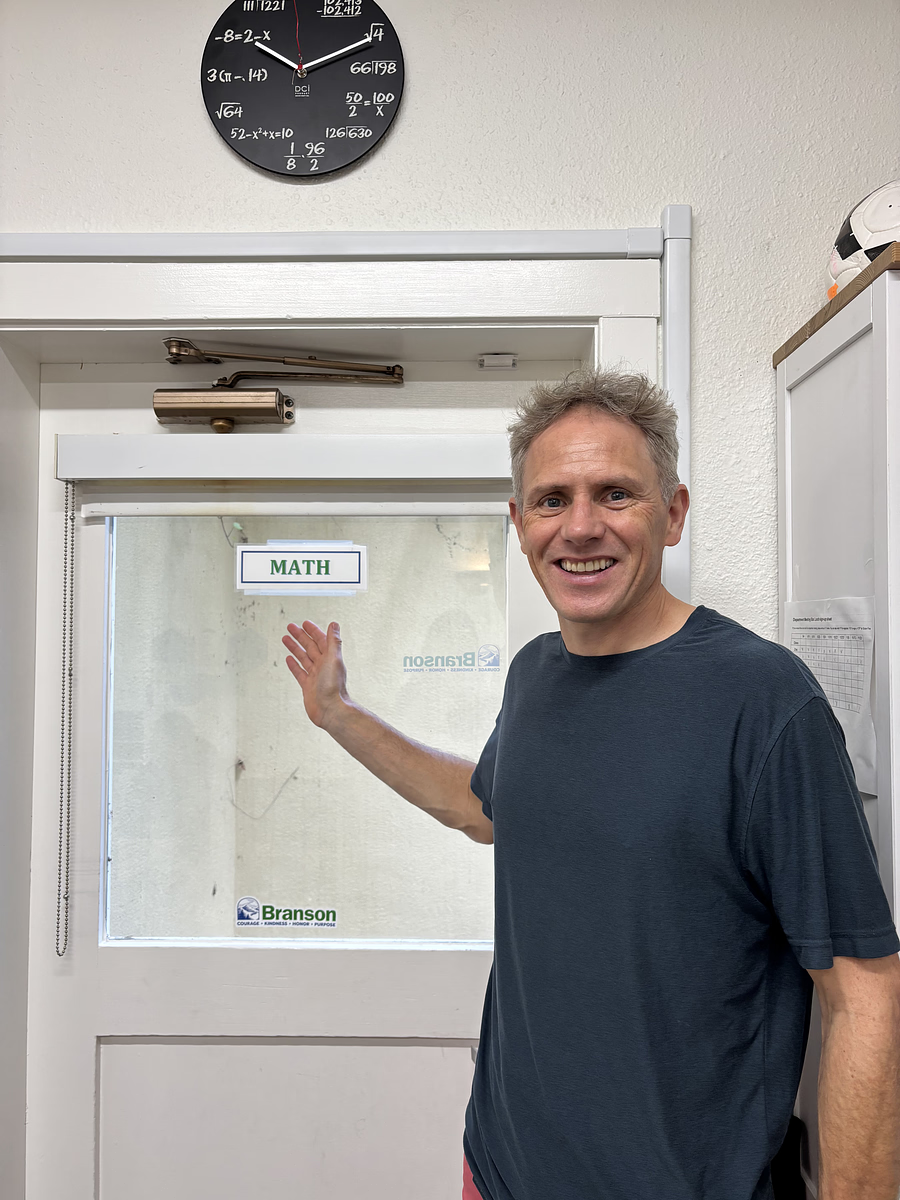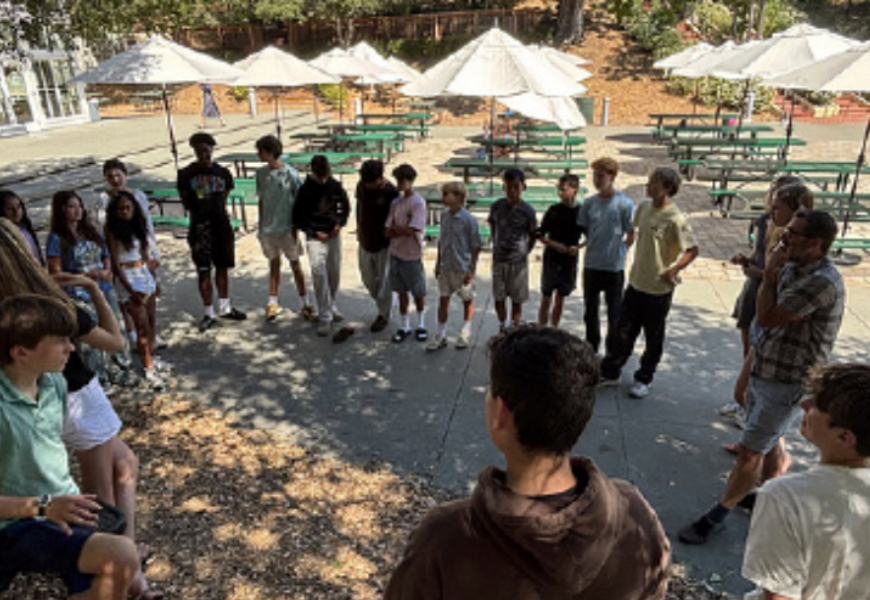Branson students may see more handwritten in-class assignments coming their way, but the new trend in the English department is about focusing students’ thoughts on textual analysis rather than minimizing cheating.
Conversations around generative AI spurred discussion about technology use on English assignments. Over the summer, Branson’s English department decided to experiment with handwriting assignments this fall to prioritize the process of writing over polished five-paragraph papers.
“The point is that you come to a text with your experiences and ideas, and you grapple with what the text tells you, and you come out of it with your own sense of what’s valuable, what’s interesting, what you have questions about,” English teacher and Department Chair Alanna Hickey said.
Neha Kamdar, an English teacher and the ninth grade dean, started her fall elective on “Crime and Punishment” with a handwritten in-class assignment to experiment with the limits it puts on students.
“There’s something to be said about looking into how your thought process is impacted when you are writing in a way that doesn’t allow you to go back and necessarily edit every single word or edit every single sentence or have spell check show up automatically on your work and really just focus on your thoughts and focus on the piece of text that you are looking at,” Kamdar said.
Michael Penczak ’26, one of Kamdar’s “Crime and Punishment” students, didn’t discover these benefits.
“Maybe it’s partially because I’m focused on the text regardless of whether or not the essay is handwritten, but I didn’t necessarily notice a change,” Penczak said.
Hickey emphasized that handwriting is about the students’ writing process, not about trapping students in uncomfortable assignments.
“I understand that that can be really anxiety provoking for students to think, ‘I’m not gonna be able to express everything I want to express in this 70-minute work period,’” Hickey said. “We know you’re not going to be able to do as much as you might be able to do while typing on a computer. That’s the point: to slow things down and to prioritize thinking.”
Penczak didn’t feel like the handwriting helped slow his process down.
“It felt like I was blurting all my notes on the book rather than writing an essay that’s one cohesive piece of writing,” Penczak said, “though maybe that was due to being an in-class essay.”
Penczak said that his classmates felt the same way.
“I think the sentiment was relatively negative on it,” Penczak said. “It was an essay day two of class. Regardless of whether or not it’s handwritten, it’s going to be stressful.”
Kamdar hopes to alleviate some pressure by highlighting that handwritten assignments are graded differently.
“I have made it clear to my students that I’m not going to be sort of grading your work on how refined your sentences are, and I may correct a few spellings here and there, but I’m not going to dock points for that because that’s not what I’m looking for here, all I’m looking for here is your ideas,” Kamdar said.
Though the teachers feel that handwriting has been successful so far, Hickey doesn’t see a more formal policy around the corner.
“These decisions are being mostly made at the level of the team, and then we’re in charge of our own elective. From elective to elective, I think these assessments look very different, and we’re in an experimental phase,” Hickey said. “We’re not in a place where we’re looking to establish a formal policy on hand-writing.”
The school is also trying out lockdown software called exam.net to merge benefits of both typing and lack of outside influence during assignments.
“For students who really do think faster than they can write by hand and prefer to type even without an accommodation, we’re trying exam.net to see. It’s still just a blank page, so hopefully some of those elements [around the writing process] are still intact,” Hickey said.
Considering AI’s competency in writing English papers, the department is also considering a broader range of assignments that get students thinking.
“We have to think of more meaningful assessments for our students. So you’ll also see a lot of like hybrid personal analytical essays or grounding a first person speaker, even when you’re in an analytical mode, to try to show students that there is a benefit to engaging critically with a text and that it doesn’t have to take this formulaic, five paragraph essay form,” Hickey said.
Hickey hopes that students will be open-minded to these experiential assignments.
“Just be willing to give it a try and be willing to fall in love with it,” Hickey said. “It might change your process in a meaningful way.”






